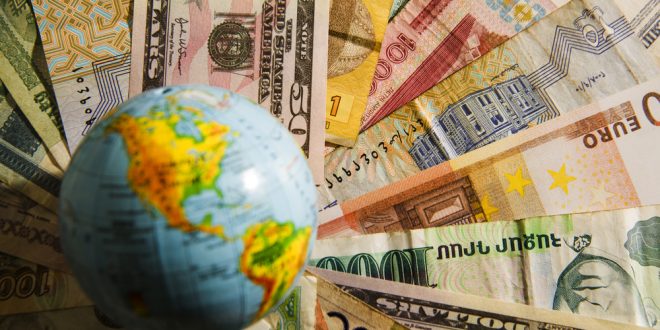Global Markets React to Russia’s Nuclear Doctrine Update
Global financial markets experienced significant volatility on Tuesday, November 19th, as Russia’s revision of its nuclear doctrine sparked concerns about escalating geopolitical tensions. Investors flocked to safe-haven assets, driving up the value of currencies like the U.S. dollar, Swiss franc, and Japanese yen.
Russia’s Nuclear Posture and Market Implications
The Russian government’s decision to update its nuclear doctrine, which outlines the conditions under which the country could use nuclear weapons, sent shockwaves through the market. This move, coupled with the ongoing conflict in Ukraine and the recent use of U.S.-supplied long-range missiles to strike Russian territory, heightened fears of a potential escalation.
As a result, investors sought refuge in traditional safe-haven assets. The U.S. dollar, often considered a safe-haven currency, strengthened against a basket of major currencies. The Swiss franc, known for its political and economic stability, also saw increased demand. The Japanese yen, historically a preferred safe-haven currency, gained ground as investors sought to hedge against uncertainty.
Central Bank Policies and Economic Outlook
In addition to geopolitical tensions, central bank policies and economic outlooks continue to influence currency markets. The Federal Reserve’s monetary policy stance remains a key driver of the U.S. dollar’s strength. While the Fed has signaled a potential pause in its rate-hiking cycle, concerns about inflation and economic growth could lead to further tightening measures.
The European Central Bank is also navigating a complex economic environment. The ECB has been grappling with high inflation and slowing growth, leading to uncertainty about its future monetary policy decisions. Any changes in the ECB’s policy stance could impact the euro and other European currencies.
Commodity Markets and Geopolitical Risk
Geopolitical tensions can also have a significant impact on commodity markets. Oil prices, in particular, are sensitive to geopolitical risks, as disruptions to supply from major oil-producing regions can lead to price spikes. Additionally, concerns about global economic growth can affect demand for commodities, further impacting prices.
The global financial landscape remains volatile, with geopolitical tensions, central bank policies, and economic uncertainties continuing to shape market dynamics. Investors should closely monitor developments in these areas and consider diversifying their portfolios to mitigate risks. As the situation in Ukraine and Russia evolves, it is essential to stay informed and adapt investment strategies accordingly.
Other Currency Movements
• Japanese Yen: Strengthened against both the dollar and the euro, benefiting from safe-haven demand.
• Swiss Franc: Appreciated against the dollar as investors sought a safe-haven currency.
• Russian Ruble: Weakened against the dollar as geopolitical tensions and economic uncertainty persisted.

 Noor Trends News, Technical Analysis, Educational Tools and Recommendations
Noor Trends News, Technical Analysis, Educational Tools and Recommendations




